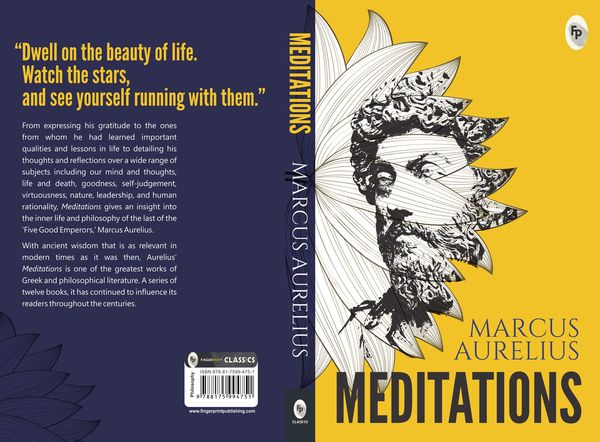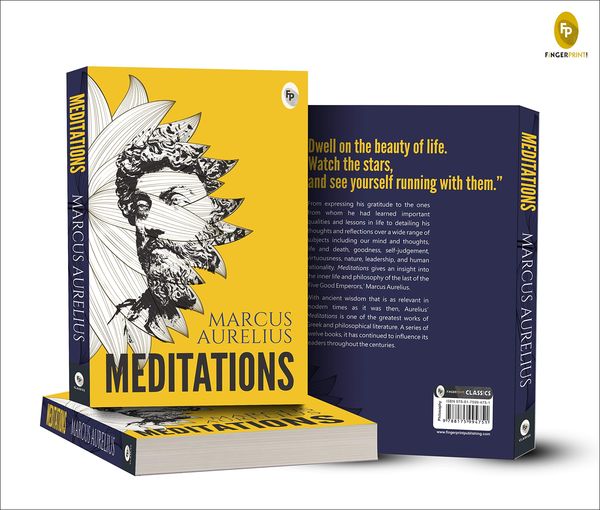“Dwell on the beauty of life. Watch the stars, and see yourself running with them.”
From expressing his gratitude to the ones from whom he had learned important qualities and lessons in life to detailing his thoughts and reflections over a wide range of subjects including our mind and thoughts, life and death, goodness, self-judgement, virtuousness, nature, leadership, and human rationality, Meditations gives an insight into the inner life and philosophy of the last of the ‘Five Good Emperors,’ Marcus Aurelius.
With ancient wisdom that is as relevant in modern times as it was then, Aurelius‘ Meditations is one of the greatest works of Greek and philosophical literature. A series of twelve books, it has continued to influence its readers throughout the centuries.
About the Author
Marcus Aurelius was born Marcus Annius Verus in Rome on 26 April 121. He was taught at home by some of the best tutors. In 161, after the death of Antoninus, Marcus became the ruler of the Roman Empire. He made Lucius Verus his co-emperor, and for the first time in history, Rome was being ruled by two emperors.
During his campaigns against the Sarmatians and Germans, Marcus penned down this emotions, thoughts, and reflections in a series of twelve books called Meditations. Originally written in Greek, Meditations records the various stages of his life and gives an insight into his inner life, Stoic ideas, and philosophy.
The first English translation appeared in 1634. It was published by Meric Casaubon. With themes, ideas, and beliefs which have continued to inspire the readers across the centuries, Meditations is one of the greatest works of Greek and philosophical literature.
Marcus breathed his last on 17 March 180. He was succeeded by his son, Commodus.
- Weight : 185
- Breadth : 12.8
- Length : 19.6
- Height : 1.5






